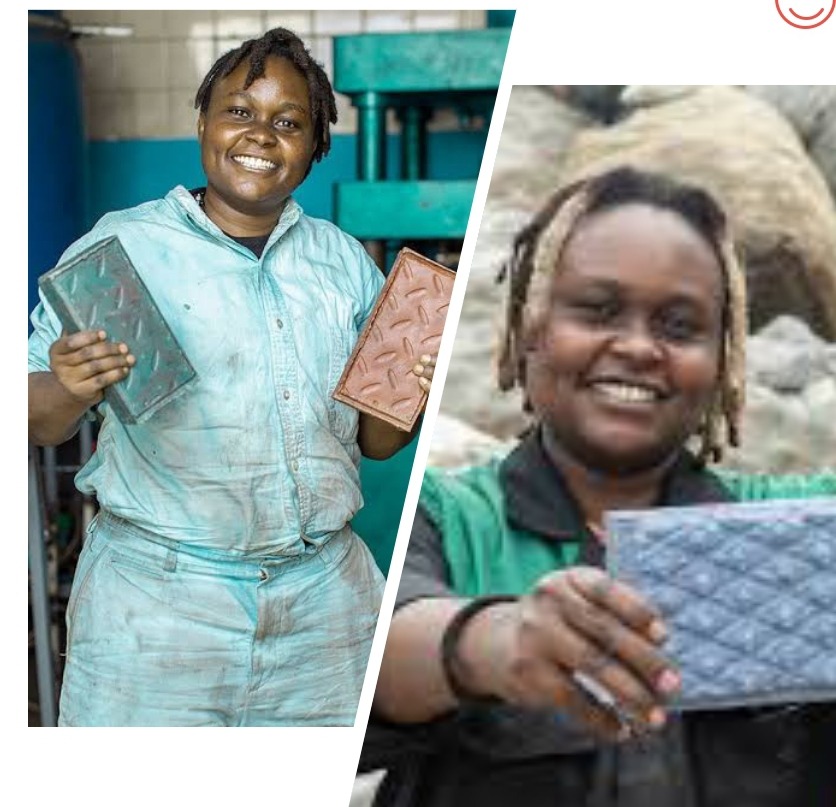Plastic waste in Nairobi holds major concern, several attempts to get rid of them have met roadblocks, now entrepreneurs have taken the burden upon themselves.
29 year old Nzambi Matee, founder of Gjenge Makers is recycling bags, containers, and other waste products and converting to bricks used for patios and other construction projects.
The company uses high- and low-density polyethylene and polypropylene as raw materials to create construction materials. She recycles plastic into bricks that are stronger than concrete.
“Gjenge Makers, is a social company whose objective is to tackle waste pollution, collecting recyclable materials from homes and institutions, as well as recycling them by making pavements and building blocks from recycled plastic bottles,” reads the LinkedIn description by Nzambi Matee.
Prior to launching her company in 2018, Gjenge Makers, Matee worked as a data analyst and oil-industry engineer. But burdened by the plight of Nairobi streets been engulfed by plastic waste, she decided to quit her job and dive in, hence she created a small lab in her mother’s backyard, testing sand and plastic combinations.
Matee, a materials engineer by training, eventually received a scholarship to study in the materials lab at the University of Colorado Boulder, where she ultimately developed a prototype for the machine that now produces the textured bricks
Her building blocks made from plastic wastes are reportedly five times stronger than cement blocks and her recycling plant now employs over 100 to help waste management.
She told Reuters that her factory processes waste that facilities “cannot process anymore, they cannot recycle. “That is what we get.” The factory produces about 1,500 blocks daily, in different sizes and colors, which is more than what some cement factories produce in Kenya. These include paving stones, paving slabs, and manhole covers.
Matee recalling the sacrifices she made, says: “I shut down my social life for a year, and put all my savings into this,” she said. “My friends were worried,” she said.
“It is absurd that we still have this problem of providing decent shelter – a basic human need,’ said Matee. ‘Plastic is a material that is misused and misunderstood. The potential is enormous, but it after life can be disastrous.”
In 2020, she emerged as one of the seven winners of the Young Earth Champions initiative instituted by the United Nations Environment Programme (UNEP). The award provides seed funding and mentorship to promising environmentalists as they tackle the world’s most pressing challenges.
Matee on tackling environmental waste says: “It’s up to us to make this reality better. Start with whatever local solution you can find and be consistent with it. The results will be amazing.”




